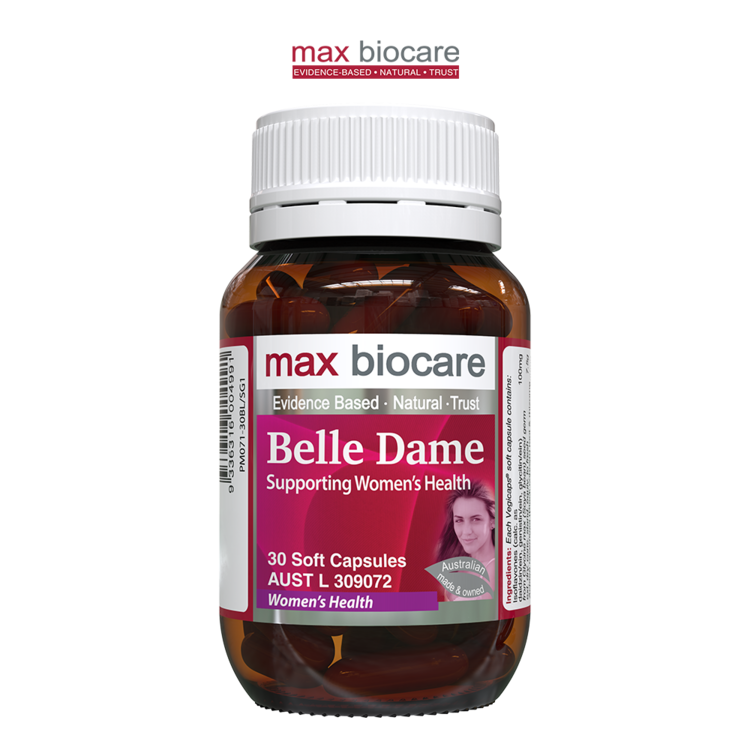Conducted in Thailand, the nutraceutical supplement being studied is Belle Dame, sometimes marketed as Estosalus, and is manufactured by Australian firm Max Biocare.
The study found after six weeks of supplementation with Belle Dame, skin roughness was significantly improved, and after 12 weeks, skin elasticity, smoothness and scaliness and wrinkle density improved.
Age-related decline in skin structure
Post-menopausal is the period after consecutive monthly periods have ceased for at least 12 months, and when skin ageing accelerates due to lower collagen production and reduced glycosaminoglycans.
The loss of skin elasticity and hydration result in a decline in skins structure and integrity. Evidence have suggested estrogen administration to slow down these changes.
Hormone replacement therapy is a standard-of-care treatment for management of menopausal symptoms and delaying skin ageing processes. However, there are still concerns over the long-term outcomes from the treatment including increasing the risk of certain cancers.
Nutraceuticals that contain estrogenic and antioxidative effects such as phytoestrogens are a promising alternative therapy.
Phytoestrogens occur naturally in plants and due to their structural similarities to estrogens, they can bind to estradiol receptors, to modulate their downstream activity.
In this study funded by Max Biocare, participants were given Belle Dame, a nutraceutical containing a blend of Glycine max, Cimicifuga racemosa, Vitex agnus-castus, and Oenothera biennis extracts.
“Clinical studies of the effects of this supplementation on skin health in post-menopausal women have not, to our knowledge, previously been performed in a prospective, randomised, controlled design,” researchers wrote in the Journal of Cosmetic Dermatology.
This research is a part of a larger study of Belle Dame, which was shown earlier to improve menopausal symptoms including hot flushes, sweating while improving sleep and mood.
Study design
For this study, 110 menopausal women between 45 to 60 years old were recruited in Thailand. They had type II and III fine lines and wrinkles.
Participants were randomly allocated to either a treatment or placebo group (n = 55 per group).
Both groups were instructed to take one capsule before breakfast daily for 12 weeks, while maintaining their usual diet and lifestyle.
Skin parameters including wrinkles, smoothness, roughness, gloss, elasticity, moisture, trans-epidermal water loss (TEWL), and melanin index were measured at baseline, week 6 and 12. The skin at the lateral aspect of both eyes was assessed.
Blood samples were collected to evaluate antioxidant status, measuring glutathione (GSH) and malondialdehyde (MDA) levels.
Skin improvements
Six weeks into the intervention, skin roughness was significantly improved in the treatment group compared to placebo.
After 12 weeks, the treatment group also saw significant improvements in skin elasticity, roughness, smoothness, scaliness and wrinkle density compared to the placebo group.
There were no significant changes in melanin index, gloss, hydration, and TEWL between the two groups.
These results suggest that Belle Dame was effective in improving skin elasticity, skin smoothness, skin scaliness, and skin roughness compared with placebo.
Researchers explained the activation of estrogen receptor-β by soy isoflavones may have stimulated collagen and elastin content, and led to mechanical integrity.
When questioned, participants in the treatment group were also more satisfied than placebo subjects with almost all aspects of their perceived skin health at week 6 and even more satisfied at week 12.
Antioxidant status
In the blood analysis, GSH was significantly increased, while MDA significantly reduced in the treatment group, compared to placebo, indicating an overall improvement in oxidative stress status.
“This indicates not only improved endogenous antioxidant activity, but also lowered plasma markers of lipid peroxidation, suggesting a dual benefit on direct oxidative radical reduction and support of protective mechanisms within the body,” researchers said.
Recommendations and next clinical trial
The Belle Dame formulation was initially designed to address the underlying mechanisms of women’s health issues, drawing from botanicals with proven clinical efficacy. In the process, the formulation was found to have multiple health benefits, including measurable dermatological performance.
According to Francis Tang, regional sales lead at Max Biocare: “The botanicals in Belle Dame work synergistically to benefit skin health. One way is through their component antioxidants in the form of polyphenols such as soy isoflavones that protect against free radical damage.
“The second is their collection of active compounds with antimicrobial effects, which may protect skin from infectious factors that cause a variety of problems, such as skin inflammation.
“The third is their ability to act as phytoestrogens, which can bind to estrogen receptors and trigger growth related effects on skin renewal.
“Lastly, the essential fatty acids in evening primrose support skin barrier function.”
Because the current study did not measure the active components from the supplement in the blood analysis, researchers recommend future studies can consider this, as well as study the long-term efficacy of this complementary medicine alongside standard estrogen replacement therapy in post-menopausal women.
Belle Dame is available in Australia and Singapore, and not marketed in Thailand yet.
Max Biocare is now planning a clinical trial of Belle Dame on cardiovascular health.
Source: Journal of Cosmetic Dermatology
https://doi.org/10.1111/jocd.14345
“Effects of a combination of botanical actives on skin health and antioxidant status in post-menopausal women: A randomized, double-blind, placebo-controlled clinical trial”
Authors: Pakagamon Tumsutti, et al.

